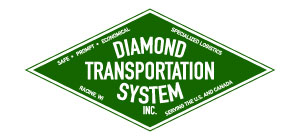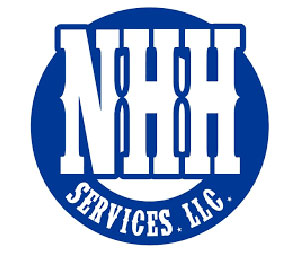What Does a Freight Broker Do
From truck drivers to train engineers to warehouse personnel, the shipping industry relies on many different professions to run smoothly. Among those professions, freight brokers play an incredibly important role behind the scenes.
What Is a Freight Broker?
A freight broker, sometimes referred to as a truck broker or cargo broker, facilitates deals between shippers who have ready-to-haul cargo and carriers, often truck drivers, who are able to transport that cargo, as explained by Trucker Path.
What Does a Freight Broker Do?
Once they match a shipper with a carrier, the dealer helps in price negotiations and handles logistical concerns. Brokers also assist with the movement of the cargo once it is in transit, and they continually communicate with the carrier to track and provide updates on the load. In other words, the dealer acts as a liaison between the two parties.
In particular, dealers or (brokers) are useful to carriers for their institutional knowledge. They can identify and call upon reliable cargo carriers who are suited to a certain cargo load. Meanwhile, they are also helpful to carriers because they provide a steady stream of work.
Brokers may work as part of a brokerage organization, or they may operate a business of their own. Additionally, they may handle both single-mode transportation, in which only one type of vehicle is involved, and multimodal transportation, which involves more than one transportation method. A truck picking up a load from a train serves as an example of the latter.
How Is This Different from a Freight Agent?
Given their similar titles, brokers are sometimes confused with agents. The two jobs do have some similar duties, according to Freight Broker Schools, but there are some differences as well.
One primary difference is that agents work for cargo brokers, either as an employee or an independent contractor. They work on a commission basis, with their income based on a percentage of the dealer’s earnings.
Another difference is that the Federal Motor Carrier Safety Administration requires traders to be licensed. Two other requirements for dealers are liability insurance and a surety bond. Agents do not have to meet these requirements, or carry risk.
As pointed out on Jobs in Logistics, traders have additional responsibilities beyond carrying the right license, insurance, and bonds. Dealers are responsible for financial duties such as paying agents and shippers, extending credit, and more.
They are also responsible for hiring only transporters that meet and adhere to FMCSA standards. If a dealer grants credit to a customer, then they assume the risk, so credit checks and monitoring are another aspect of a broker’s job.
As for their part, agents tend to handle many of the day-to-day duties that go into brokerage. For example, they might schedule pickups and dropoffs, search for new carriers and transporters, and handle dispatches. They also work to head off problems that may arise during the shipping process, ensuring smooth transactions.
Osage Specialized Transport is a top five agent for major carriers such as GreatWide, GreenTree, and Midwest Specialized Transport.
Why Are Freight Brokers Important?
The connections and skills dealers bring to the table play a vital role in the shipping industry, as highlighted by Global Forwarding and Trangistics. For example, dealers work with transporters to set up a transportation plan that fits their budget, schedule, and other needs. They can even offer shippers discounts in some cases, and they handle both less-than-truckload and full truckload situations.
Meanwhile, carriers benefit because traders help them keep their trucks full and profitable, instead of sitting empty and not generating money. Some companies go so far as to rely on dealers to handle 100 percent of their shipping operations.
Other types of dealers fill specialized roles. For example, agricultural truck traders facilitate the transportation of agricultural products, generally within a specific geographic area. Import-export brokers coordinate with government agencies, carriers that operate internationally, and other entities to ease the processes of importing and exporting.

What Does a Typical Freight Broker’s Day Look Like?
Given all the different duties that they handle, it should come as no surprise that the day of a dealer can be quite busy and diverse. For instance, A1 Freight Systems describes it as “fast-paced” and “high-pressured,” but ultimately quite lucrative. Cargo dealers typically wake up early and begin reviewing emails, voicemails, and the day’s trucking schedule.
They may also check in with drivers, who, like brokers, are usually up at an early hour, per New Freight Broker. Additionally, the morning often is when the dealer sees communication sent the previous night, including information from drivers such as successful delivery confirmation, or notifications of problems such as accidents and delays.
Another duty for early in the day, according to writer John D. Thomas, is to begin using the broker’s database of transporters to look for potential income. Thomas writes that dealers will have perhaps 20 to 40 shippers in their database, and the morning is when traders reach out to those shippers to see if they will need to hire a carrier that day.
If the dealer and shipper already have a strong relationship, this process may be reversed, and the shipper may call the dealer first. The broker may also hear from drivers looking for work at this stage.
When the broker has found a shipper that is in need of a carrier, the dealer receives their order, taking care to clear up any uncertainties. Key information to nail down here includes mileage, addresses, and details on the goods being shipped.
The dealer also confirms the shipping rate with the shipper and carrier, and confirms that the carrier they have in mind can do the job. Then, the job is set in motion.
As the day progresses, the dealer will repeat this process. They will also perform other duties, such as verifying pickups and schedules, and continuing to work with customers. By the end of the day, the broker will have checked that their carriers have performed all pickups and dropoffs as promised.
Then, it’s time to plan for the next day, which is sure to be another busy one, before getting some rest.
Planning for Success
The busy day of a freight broker is worth it to the broker, they can make an excellent living. It is also essential for those they work with, without dealers, shippers would have a hard time sending their goods across the country, and truckers would be frustrated by the sight of their rigs sitting empty.
If you have a cargo of any size that you need transported throughout the nation and require the hauling services of an experienced cargo brokerage, contact us at Osage Specialized Transport. Working and thriving in the industry since 1995, we will ensure that your shipment arrives quickly and safely, with location updates available as you need them.
Reader interactions
One Reply to “What Does a Freight Broker Do”
Comments are closed.
















[…] For those in the transportation industry, safety is a high priority. Indeed, safety is the highest priority of the Department of Transportation, or DOT, and its related departments. […]